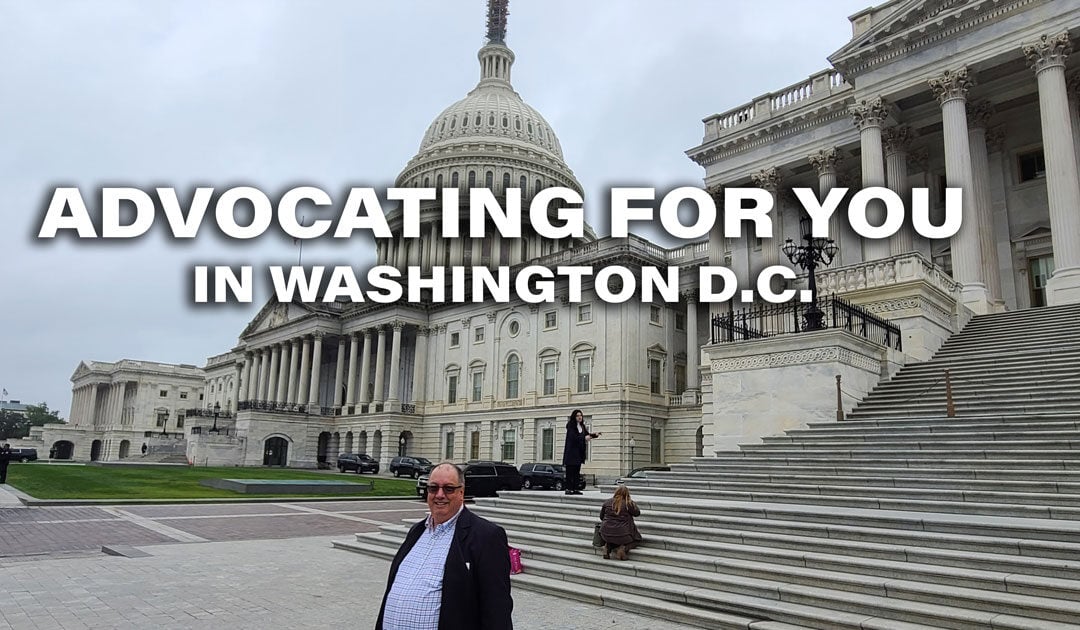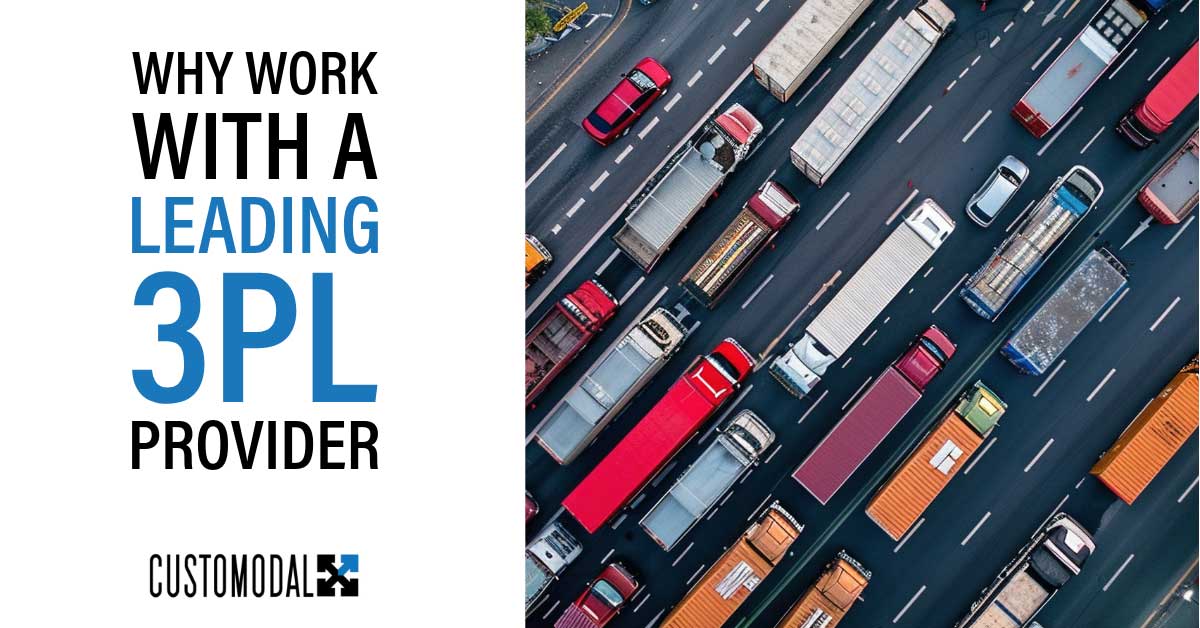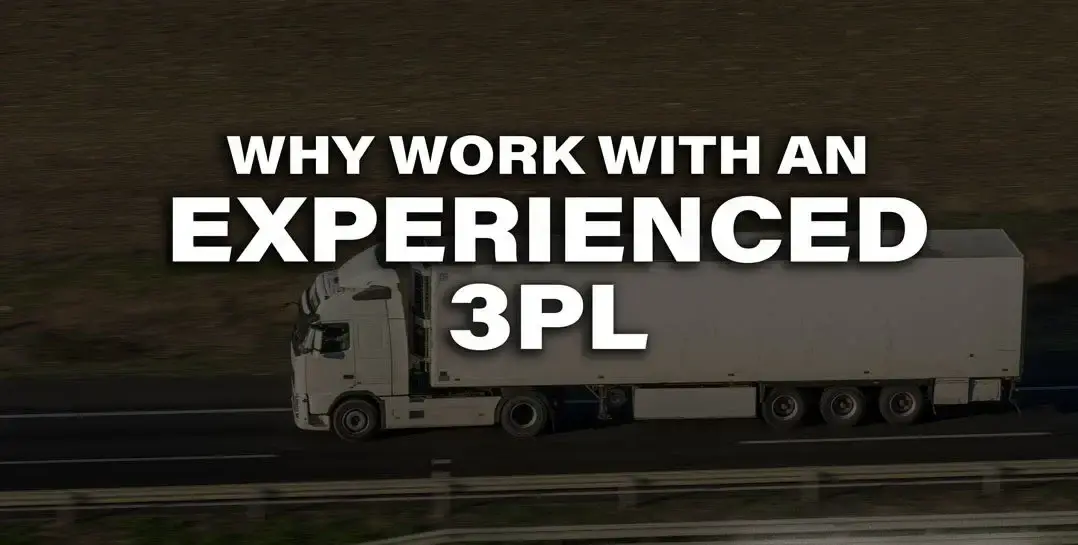
In an era marked by growing concerns about sustainability and the integrity of supply chains, Customodal CEO Mike Eberl is working alongside other industry leaders to push for positive change within the logistics and transportation sector. Eberl’s recent meetings with legislative staff at the offices of influential Senators and Representatives underscore the pressing need for action in the 3PL (Third-Party Logistics) industry.
Eberl’s discussions, held with lawmakers including Senator Tammy Baldwin, Senator Ron Johnson, Senator Tom Tiffany, Representative Mike Gallagher, and Representative Glenn Grothman, revolved around several critical topics. The meetings focused on key topics crucial to the logistics sector, emphasizing the positive environmental effect of the 3PL industry, the pivotal role played by freight brokers, and the need to combat fraudulent brokering of freight.
Rising Threat: Fraudulent Rebrokering in the Logistics Industry
One of the most alarming challenges tackled in these meetings is the rampant issue of fraudulent rebrokering of freight. This practice is eroding safety standards on our nation’s highways, increasing costs within U.S. supply chains, and tarnishing the reputation of the logistics industry as a whole.
Fraudulent rebrokering is a deceptive trend that has stealthily infiltrated the logistics industry, causing substantial damage to the supply chain. With an estimated annual economic impact exceeding $800 million, this criminal trend has been on the rise, particularly in the aftermath of the COVID-19 pandemic. It has evolved into a highly organized operation, impacting businesses and communities across the nation.
How Does Fraudulent Rebrokering Work?
The most common scenario of illegal rebrokering involves legitimate trucking companies. These companies initially accept a load from an ethical broker but later find themselves overcommitted. Instead of transparently returning the load to the broker, they choose to rebroker it to another carrier. Their intention is to maintain a good relationship with the original broker, unknowingly exacerbating the problem.
Today, fraudulent brokering is predominantly carried out by individuals posing as carriers, spoofing legitimate carrier identities, or even criminal organizations that have gone to the extent of registering with the FMCSA (Federal Motor Carrier Safety Administration) as a carrier. They often lack a physical address, trucks, or any genuine intention to operate as a trucking company. These fraudulent entities convincingly mimic legitimate carriers, passing the qualification screening of reputable brokers like the Transportation Intermediaries Association (TIA). Once a load is brokered to them, they deviate from their role as carriers and instead rebroker the load to another unsuspecting trucking company with no intention of ever settling the bill.
This chain of events ultimately leads to a payment dispute, with “carrier B” invoicing “carrier A” for the job. Meanwhile, “carrier A” invoices the broker and receives payment. Months down the road, the shipper, who is often unaware of these fraudulent activities, receives a call from a collection agency representing “carrier B,” seeking payment. This situation creates a domino effect of financial complications and jeopardizes the credibility of the broker.
Startling Insights and Concerns
During a discussion with the FMCSA and brokers at a recent industry event, several alarming anecdotes were shared:
- A single building in Wyoming houses 130 trucking companies registered with the FMCSA, shedding light on the extent of this problem.
- Fraudulent actors, when caught, have been known to boast, “You caught me this time, but I have 149 more trucking companies registered, and I’ll get you the next time.”
- Fraudsters have even submitted requests to the FMCSA to change the phone number and email of a legitimate trucking company to the information provided by the fraudster. This level of sophistication makes it difficult for brokers to detect fraudulent activity.
Eberl and other industry leaders are actively advocating for solutions to combat this issue and protect the integrity of the logistics sector.
Customodal remains at the forefront of these efforts, ensuring that efficiency, transparency, and sustainability are at the core of its operations, while actively collaborating with lawmakers and industry peers to drive meaningful reforms.



